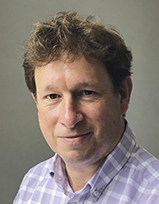On Monday 21 September, the Tallis Scholars will perform their 2000th concert when they sing works by Taverner, Sheppard, Byrd and Gabriel Jackson at St John's, Smith Square in London (click here for details). In the 42 years since their first concert, the Scholars (seen above in 1977) have made their name across the globe as leading performers of Renaissance choral music, though their repertoire is by no means confined to the 16th century. As the big 2000 approaches – broadcast live on BBC Radio 3 – the ensemble’s founder and conductor Peter Phillips picks out six notable numbers from their glorious career…
10 singers, and an audience of 20… ‘Our first concert was at St Mary Magdalen Church in Oxford on 3 November 1973. I remember that the final afternoon rehearsal was the only time that all the singers turned up. It was only at that rehearsal that we realised that we couldn’t sing all of Ockeghem’s Missa L’homme armé, so we just sang the Kyrie and Gloria. I remember the guys being disappointed that they couldn’t just sight-read it straight off. I think there were about 20 people at most in the audience that evening – I’ve recently been asking around to try and find anyone who was there and can remember it! We hit the ground running as a group and our next concert, of Tallis's Spem in Alium, was just about a month later.’
40 voices needed for Tallis’s Spem in Alium ‘There are two kinds of Spem in Alium. There’s an all-professional performance, where the 40-part group suddenly costs four times as much to run as my ten-voice choir usually does. And then there’s the pro-am performance, which is what I usually go for – we take our ten singers on tour and join up with 30 local people. It’s a work that can be terrific, and can be absolutely dire. It’s the sort of piece that, if it goes wrong, you’re buried under the most enormous texture. It’s never broken down completely, though, as there’s a way of preventing that – you need to know where the sopranos who are giving the crucial leads are standing, and bring them in.’
61 original discs ‘Choosing a favourite from all our 61 original discs [ie not compilations] is not easy, as I’m not entirely sure what criteria to apply. If we’re talking about the sound of the music itself, I think I’d go for our 2005 disc of music by John Browne. It’s fantastic music and the disc was very successful, but I can’t remember much about the recording sessions. I do remember, though, recording the first disc in our complete cycle of Josquin’s masses – there will be nine discs in all. It was some time ago now, but quite an event.’
617 concerts given in the UK ‘When looking back over the records of our performances, I was amazed to see that out of a total of 2000 concerts, less than a third have been in Britain. I’m pleased about this, as one of our unique selling points is the international reach we’ve achieved – not just through concerts, but discs as well. But more generally, it’s also pleasing because it shows that Renaissance polyphony is of interest to people all over the world. I was initially most surprised by our success in Japan since, as with any country outside the Latin Christian tradition, the audiences had no previous experience of the music and I thought our profile might put them off. It was a risk going there, but it worked!’
451 performances of Allegri’s Miserere ‘People often ask for us to sing Allegri’s Miserere. It’s a very famous piece and we’ve perfected certain techniques that it needs – the tuning, for instance, is very, very difficult. There’s also that spectacular element involved in placing the group of solo singers somewhere else in the building away from the main choir, and one always tries to get them the perfect distance away. Sometimes it works, sometimes it doesn’t. When we did the work in St Paul’s Cathedral in 2013 (above), and Amy Haworth started singing the soprano solo from up in the gallery, it was the first time in years that I’d had that shiver down the spine – in that building, one had no idea where the sound was coming from.’
2000 concerts and counting… ‘It has worked out by sheer chance that our 2000th concert will be the one at St John’s, Smith Square. We’d always wanted to make a big noise about this particular concert anyway, as it’s launching a week of activity and is in a great public venue. So the celebration has fallen into place almost without us having to do anything. I’m taking the opportunity to do Sheppard’s Missa Cantate as the big work. Its title means ‘Sing!’ and it is a six-voice work and quite substantial. I think it is under-represented compared to other masses of the period, and deserves a high-profile occasion. I just hope we sing it well!’
Interview by Jeremy Pound
